Volunteer Tetiana Liulka: Parents hide children in basements to avoid evacuation
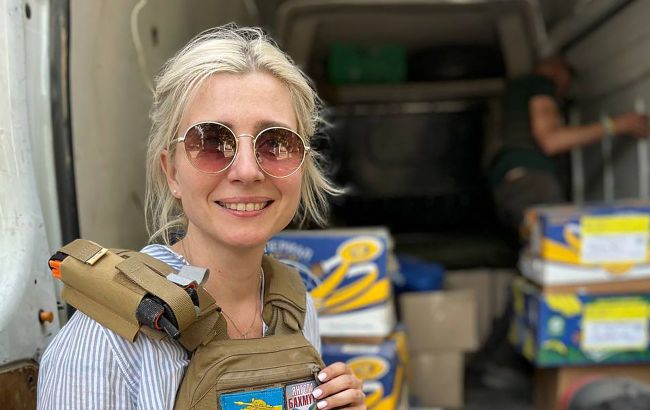 Volunteer Tetiana Liulka (photo: provided to RBC-Ukraine)
Volunteer Tetiana Liulka (photo: provided to RBC-Ukraine)
Evacuating children from front-line areas can become a major challenge if parents are adamant about not leaving. Details on how families are rescued from shelling and then assisted in adapting to new locations are covered in this RBC-Ukraine article.
Before Russia’s full-scale invasion of Ukraine, Tetiana Liulka was building a successful career, ranking among the top ten marketers in the country. In the spring of 2022, she, along with other volunteers, brought aid to children and their parents who were hiding from shelling in Kharkiv’s metro system. That moment was pivotal: Liulka decided to focus on helping children. Within a week, a volunteer headquarters began operating in Bila Tserkva.
Over the past two and a half years, Tetiana and her team have made 83 trips to front-line areas. One of the major problems during evacuation is that many families, for various reasons, consciously refuse to leave, thereby putting themselves and their children in danger, says the head of the fund.
RBC-Ukraine spoke with Tetiana Liulka about the challenges of evacuating families from war zones and why some parents refuse to leave despite the direct threat to their safety. Here’s a direct quote from the interview:
“Don’t wait until you have to leave with just one bag.”
I’ve been involved in the evacuation of children many times. And I must admit, you need very strong nerves to handle it. What’s most disheartening is when people decide to stay. Unfortunately, this happens quite often. It’s incorrect to say that all these people are waiting for the Russians, that they are 'waiters.' However, their decisions are often not just surprising; many of these decisions are deeply painful.
The primary argument is that they simply have nowhere to go. A major problem is the misinformation spread through Telegram channels in cities and villages in the 'red zone.' This also heavily influences the decision to stay.
We have developed what we call a 'gentle evacuation' to reduce stress for the family and improve their adaptation after leaving. How does it work? After several months of communication with a family from Donetsk, Kharkiv, Sumy, or Zaporizhzhia regions, once we’ve established a trusting relationship, we invite the family to our city for a few days to see what it’s like.
We’ve conducted many of these 'gentle evacuations,' and they have proven effective. Firstly, the family can see the possibility of finding employment, and children can attend school in person. Also, compared to front-line cities, our city is relatively calm. Children are always amazed by the freedom to walk around the city during the day, go to the cinema, and hang out with friends. It is often the children who react most positively to the opportunity to move to our city.
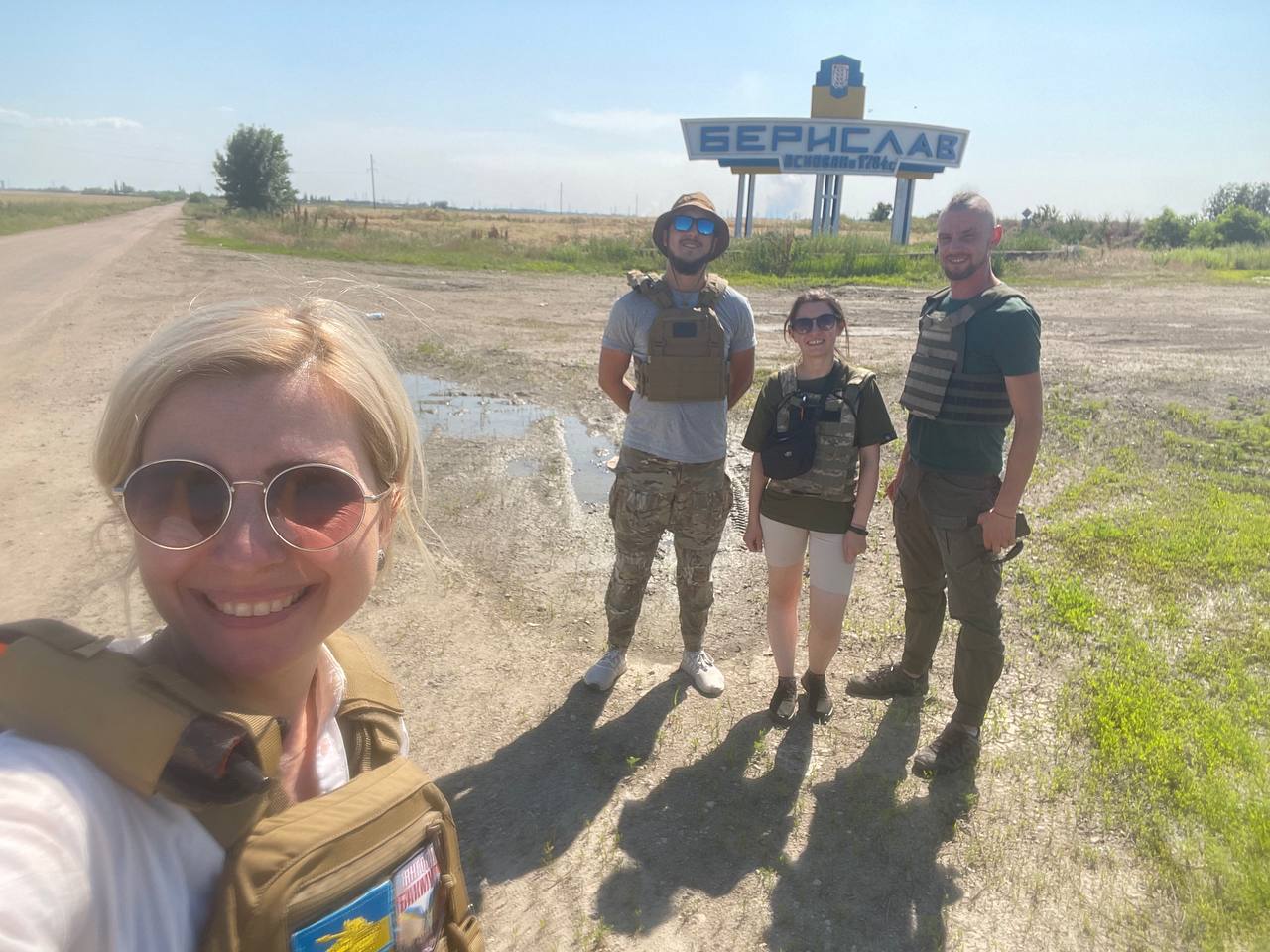 Photo: Tatyana and a team of volunteers take families with children from the frontline areas
Photo: Tatyana and a team of volunteers take families with children from the frontline areas
The process is now well-established. We conduct evacuations using two large vans. We understand the value of everything that families with children wish to bring with them. Some items are sentimental.
For instance, we are currently preparing to evacuate the family of a fallen hero from Sumy region with three children. The wife has requested our help to move and take her bed. We try to convince her that we can find a bed for her here. But through her tears, she explains that the bed was made by her late husband and serves as a memory of him. Of course, we will take the bed. For such women, memories are all that remains of their husbands.
However, evacuation is just the beginning. Our patronage service assists the family with finding and renting housing, setting up, and providing help with repairs if needed. We also help with finding schools and kindergartens. We often assist with the complete restoration of documents, and families undergo medical examinations and psychological support. We aim to help the family become independent in their new location.
Sometimes people return for various reasons, usually when they haven't found work or haven't settled in at their new place. However, none of the families we have evacuated have returned. This demonstrates that families cannot be left alone; we must help them establish their new lives.
Evacuating a family with children from a frontline area is only part of the process. Adapting to a completely new life is much more challenging. Often, after arriving at a new location, we leave the family alone for a week to let them adjust. This is a huge stress for them. In the first few days, many need to be alone to recover somewhat.
Children often experience both reversible and irreversible psychological changes due to the trauma of war. Therefore, all children undergo sessions with a psychologist. It is essential to spend a lot of time with evacuated children, providing them with care and support.
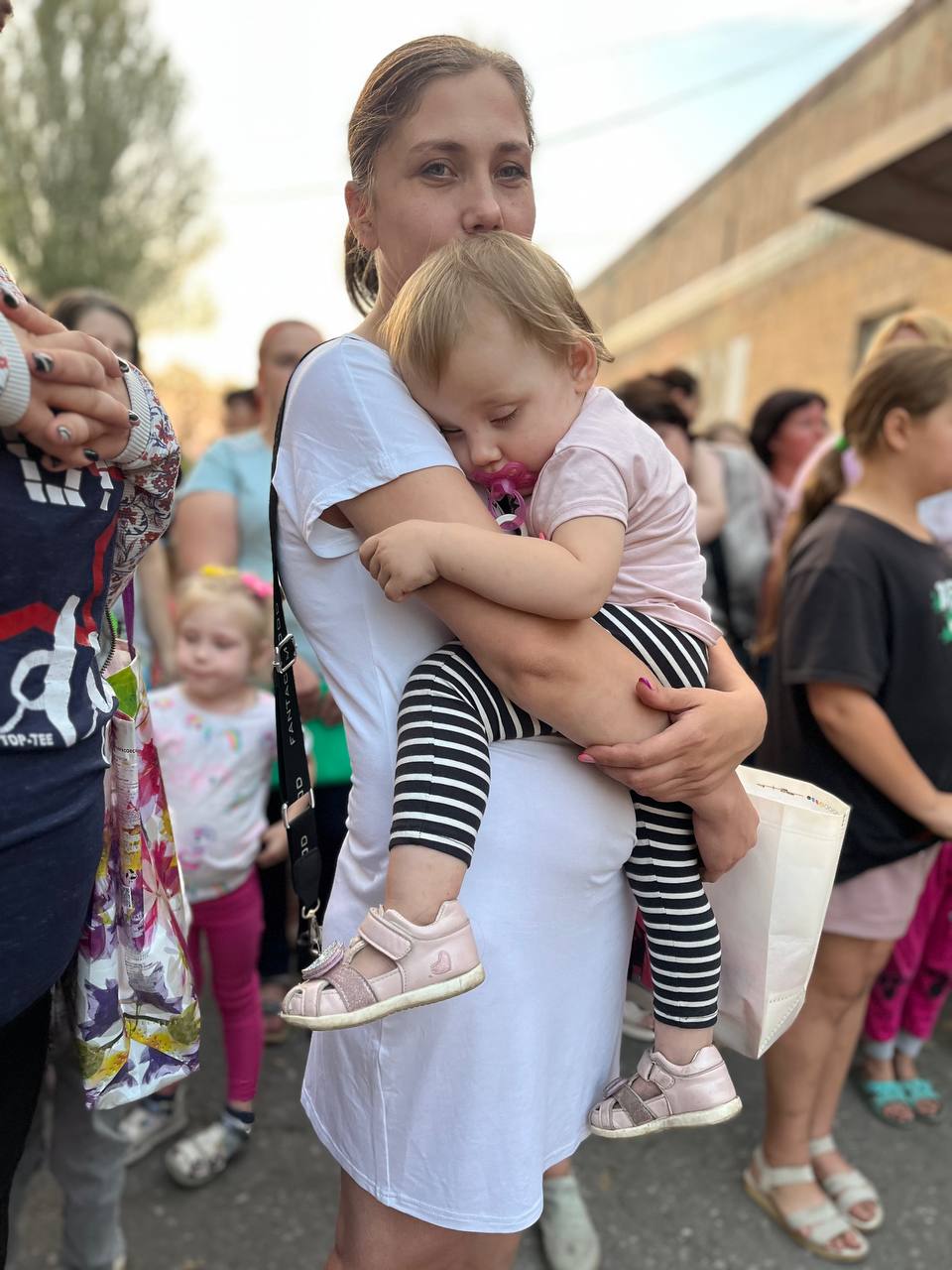 Photo: Families are first brought to a new place to show the conditions in which they can live
Photo: Families are first brought to a new place to show the conditions in which they can live
For example, we received a donation that allowed us to purchase woodworking machines, and now we can conduct workshops for children. However, our instructor is currently preparing to join the Armed Forces, so these activities will be on hold for now.
There is a family from Sloviansk with six children. They are a very nice family. Their room was memorable, decorated with certificates and medals that the children won at sports competitions, having become champions.
They evacuated with their children to the Dnipropetrovsk region in the early days of the invasion. The local council provided them with a small house, and the family spent all their savings to install electricity and adapt the house for living, making it clean and beautiful. However, a few months later, the owner of the house returned and, seeing the positive changes, informed them that he would be selling the house. The family was forced to return to Sloviansk.
Another family from Donetsk region was ready to move, and we even found them housing. But a week later, the woman wrote to me saying she would not be leaving. She did not state the reason directly, but it was clear that her husband refused to evacuate. As long as he is there, she and the children will stay with him.
Why some parents refuse to evacuate their children
Often, parents do not allow their children to leave, which is a huge problem. I once received a message from a 13-year-old girl from a frontline city. She wrote that she desperately wanted to move, dreamt of living in a relatively peaceful place, wanted to have friends, attend school, and not spend all day at home. But her family did not want to leave. So where should she turn? We cannot evacuate a minor child without parental consent.
Unfortunately, there are cases where parents hide their children from evacuation. I have seen firsthand how parents hide their children in basements. We saw this situation in Bakhmut as well. When the Russians entered Bakhmut, over 500 children were left behind.
One day, I received a message from a soldier we had met in Kramatorsk. He is an artilleryman and, before the full-scale invasion, owned jewelry stores. He is the father of five children. Despite everything, he voluntarily joined the military. He informed me that in Siversk, Bakhmut district, there is a large family that refuses to evacuate. The soldier asked me to come and talk to them.
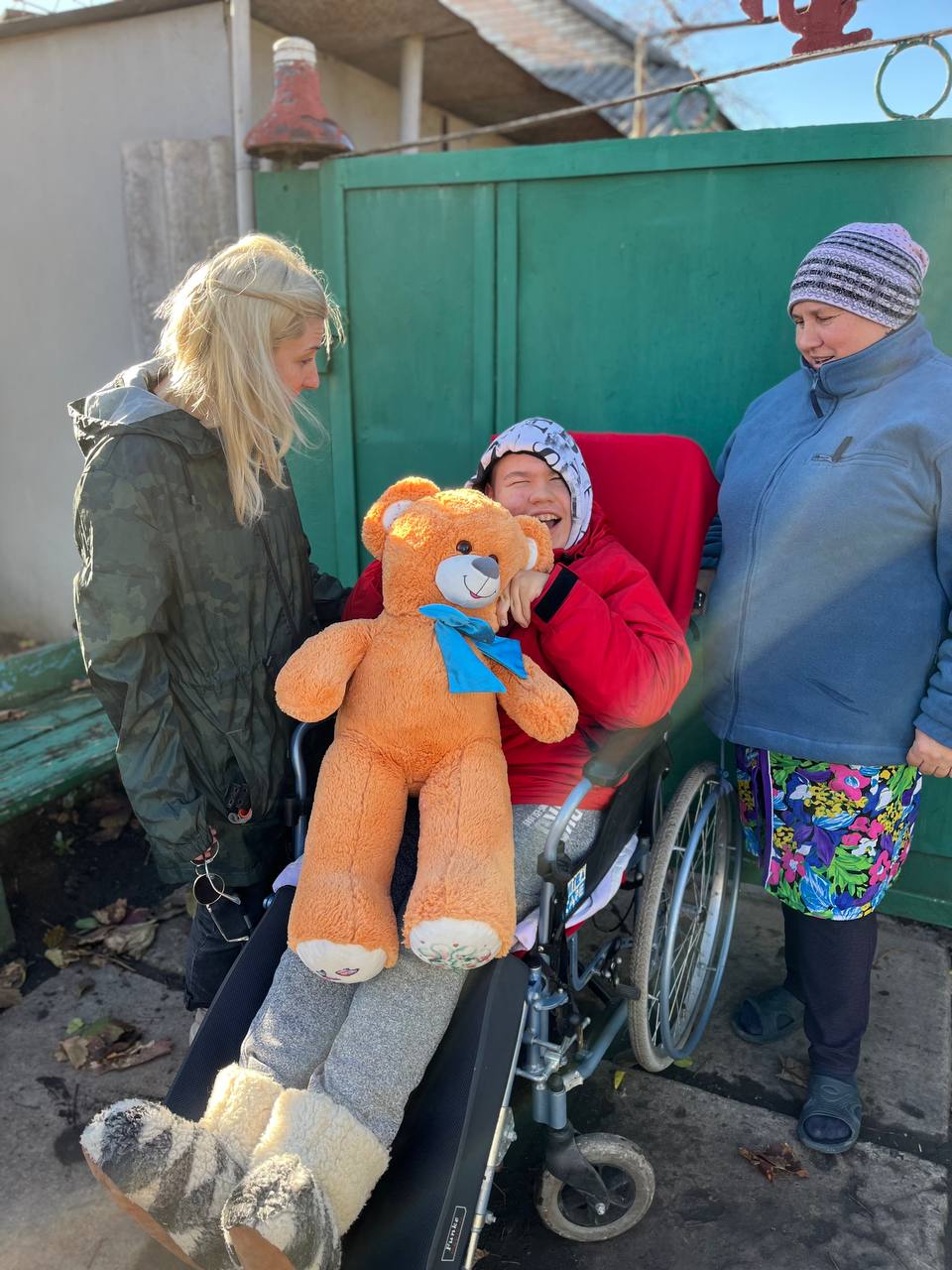 Photo: Moving children with disabilities requires special conditions
Photo: Moving children with disabilities requires special conditions
At that time, several families in the city categorically refused to evacuate. The city was already without electricity, water, and gas. There were no living conditions for children, with constant shelling.
I prepared meticulously for this trip. I printed maps to show how close the enemy was. I showed posts from social media and testimonies from women who suffered during the occupation of Kherson and Bucha. It was only through such methods that I managed to convince a mother with three children to evacuate.
We were in Bakhmut shortly before the city was occupied by the Russians. At that time, a family with two boys remained there. I later searched for them, not knowing if they had survived. I searched because I had promised to take them. A year passed, and it wasn’t until June 2024 that I found information about them on Russian resources. It turned out they were taken with their mother to Russia.
A friend of mine died in Mariupol, and I was searching for her daughter. After two years, I found her. The girl had been taken to Crimea. There are many such cases.
"This is my goal: children must return home"
In my office, there is a photo of children whom I was unable to evacuate. For me, this is a daily motivation. This is my goal: children must return home. Evacuating children from occupied territories is a separate issue, and much of it cannot be disclosed due to security concerns.
In the summer, we carried out two evacuations from Lyman. We spent literally six months convincing one family to leave. When Lyman was eventually closed for entry, they called us themselves and asked to be picked up. Risking it, we went, and we managed to evacuate everyone: with their belongings and pets. One family was accommodated free of charge in a house in Cherkasy, and another near Kyiv. If they had waited another week, we would not have been able to evacuate them.
I will add one more thing that I often hear from the military. We need to stop bringing aid to the "red zones." Instead, we should create all conditions for people who agree to evacuate.
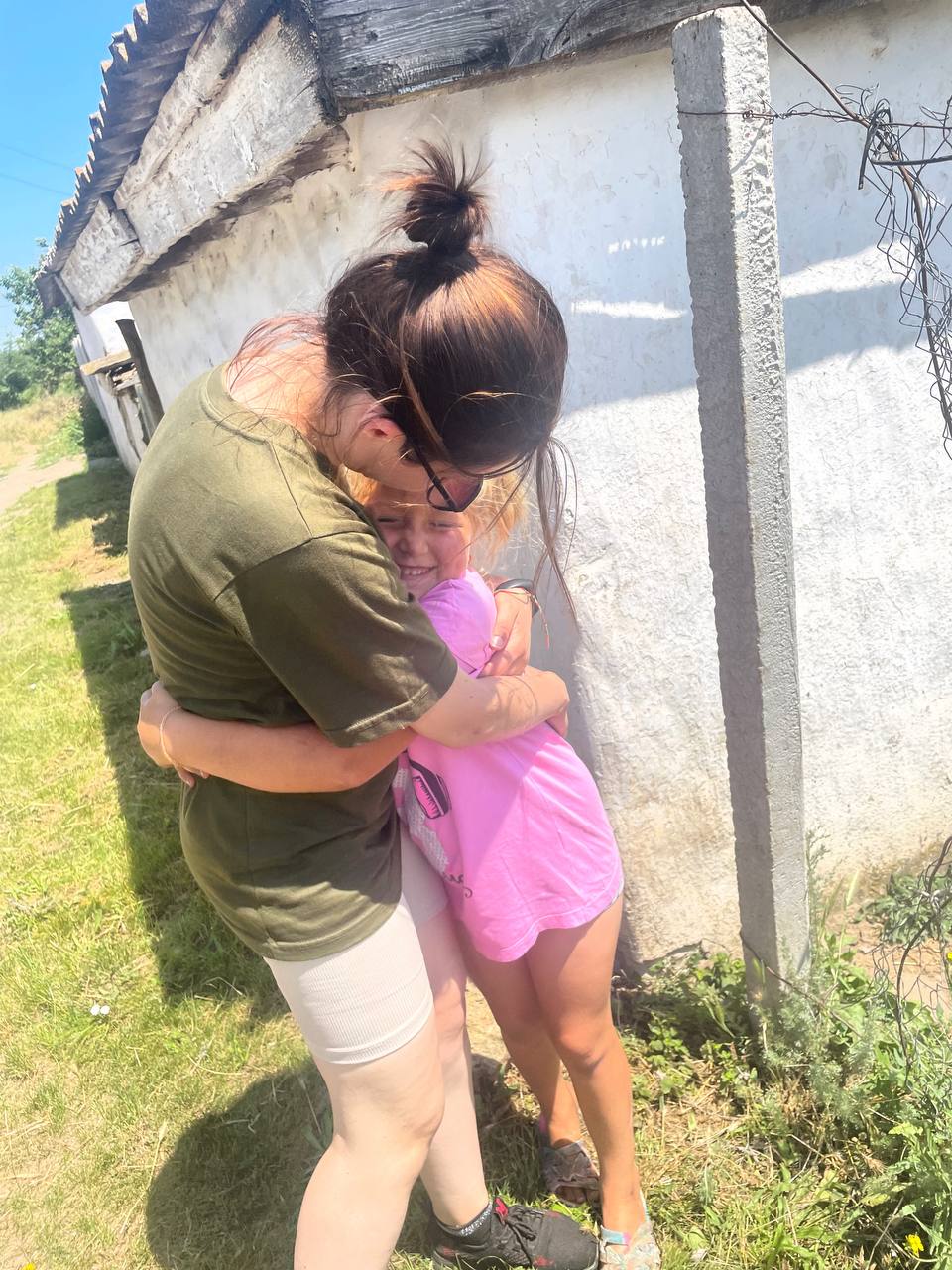 Photo: Tatiana dreams of being able to take as many children as possible out of the occupied territories
Photo: Tatiana dreams of being able to take as many children as possible out of the occupied territories
We are unable to reach thousands, but for the families we have evacuated, we provide everything they need to start a new life. Unfortunately, there are people and families who were struggling even before the full-scale war. The reasons are varied. However, I believe those who want to change their lives will not ignore the opportunity to leave.
For example, we evacuated a family with two children from Lyman to a small village in Kyiv region. To our surprise, both the father and mother found jobs within two weeks. And a month later, they found a better house on their own and moved without bothering us. This family immediately showed themselves to be those who are ready to work and do not wait for help. These are the people we want to support. Such families set an example for their children on how to take responsibility for their lives. Therefore, they were supported by both the locals and the company where they found employment.
However, I want to emphasize that each situation is unique with thousands of details. Sometimes families with children want to leave but cannot physically manage it.
In one family we assist, there is a boy with severe cerebral palsy. At 16, he weighs close to 100 kilograms. Simply getting him out of the house is a major procedure. To evacuate this family, appropriate conditions must be immediately provided. This requires funding. The family would gladly leave, but I do not have the means to transport them. We have many such families.
Landlords who rent out properties behave differently. A specific category is realtors. In two years, only one refused to take a commission from the rent when she heard the apartment was for an injured child from Kherson.
There was a case where the landlord herself worked as a realtor. I explained that we were renting the apartment for a child with his grandmother, as the mother had died. I asked if she could at least offer a discount or waive the commission, since she was the owner and thus already earning from the rent. This lady responded that “everyone survives as best they can.”
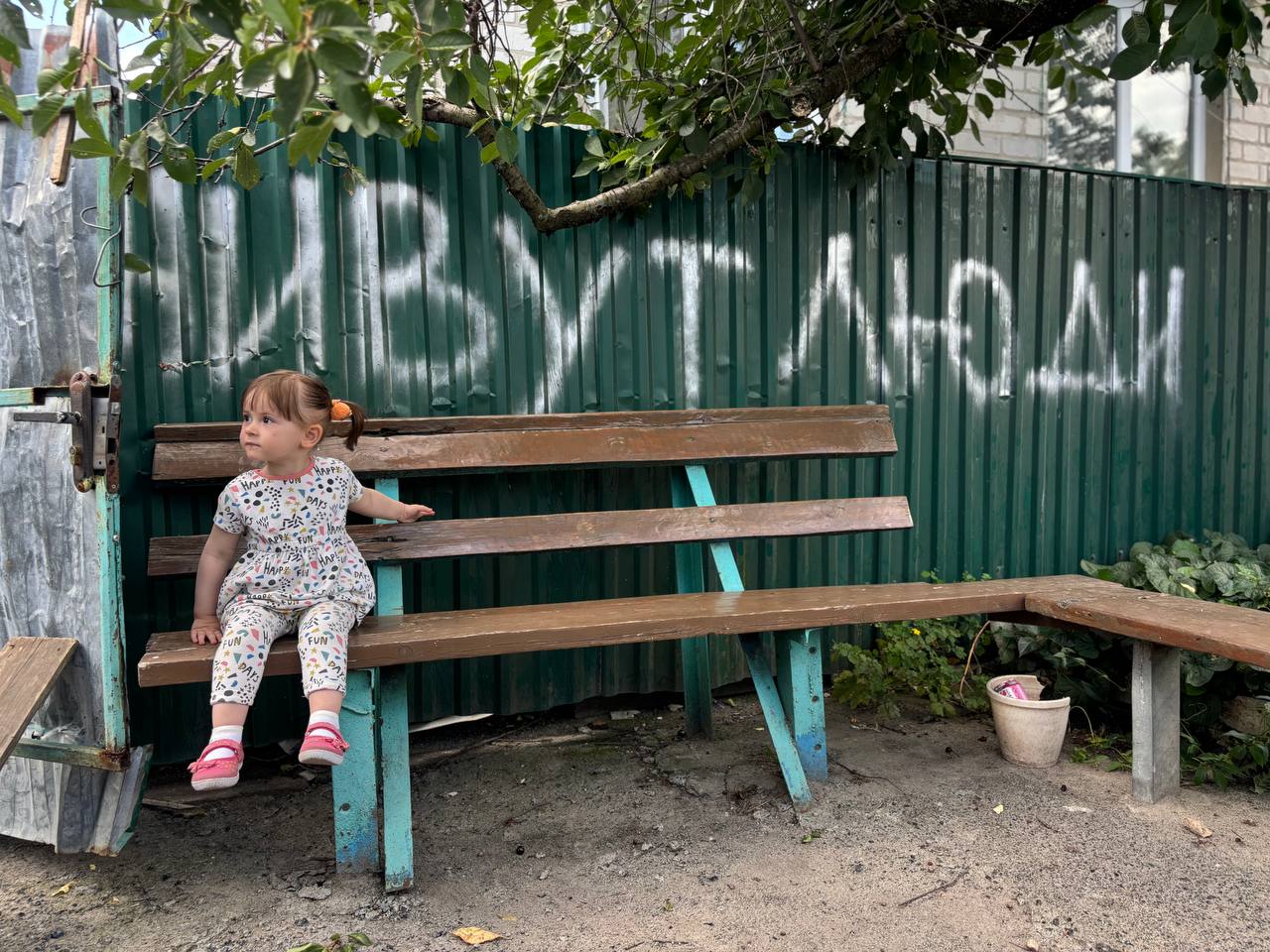 Photo: Evacuation is only one of the stages: next, families need to adapt to a new place and look for work, and children need to be placed in educational institutions
Photo: Evacuation is only one of the stages: next, families need to adapt to a new place and look for work, and children need to be placed in educational institutions
That is why we launched the "HOME" project. It will be a Centre for the Assistance of Children and the Elderly. A place where children who have lost their parents but live with a guardian, such as a grandmother or grandfather, can stay. We have under our care Vlad from Lyman. The boy is seven years old. His mother has died, and his grandmother is seventy years old. We rent accommodation for them and take the child to a psychologist. In short, our patronage service fully takes care of this child.
There is a grandfather from Bakhmut who has lost everything, including his family. The orphan boy, the grandfather from Bakhmut, and other children and elderly individuals can live in the Centre for the Assistance of Children and the Elderly DІМ. More details about this can be found on our fund’s page.
Why volunteer enthusiasm wanes and how to prevent it
We all remember how, at the beginning of the full-scale invasion, nearly everyone became a volunteer, people united and did many useful things. Now, many are experiencing a decline in enthusiasm.
From the start of the full-scale invasion, I understood that it was not worth establishing the fund’s activities and creating a humanitarian warehouse in Kyiv. Unfortunately, the capital remains a prominent target for shelling. Therefore, I chose Bila Tserkva.
When we began our work, there were over a hundred similar organizations in the city. They gradually started closing down, and today only a few might still be operational. Only those that began their activities back in 2014 are developing steadily.
I asked myself why this is happening and analyzed the situation. The organizations themselves attribute their closure to a lack of support and a decrease in aid from foreign donors. However, we operate under the same conditions as everyone else, with a significant reduction in donations and lack of foreign assistance.
I believe the reason lies in the lack of management and development strategy. In September 2022, I had a clear vision of the fund’s structure. The primary goal was for volunteers to become official employees of the fund. Legalizing the status of everyone who wanted to help children in our organization was my top priority. Assistance must be effective.
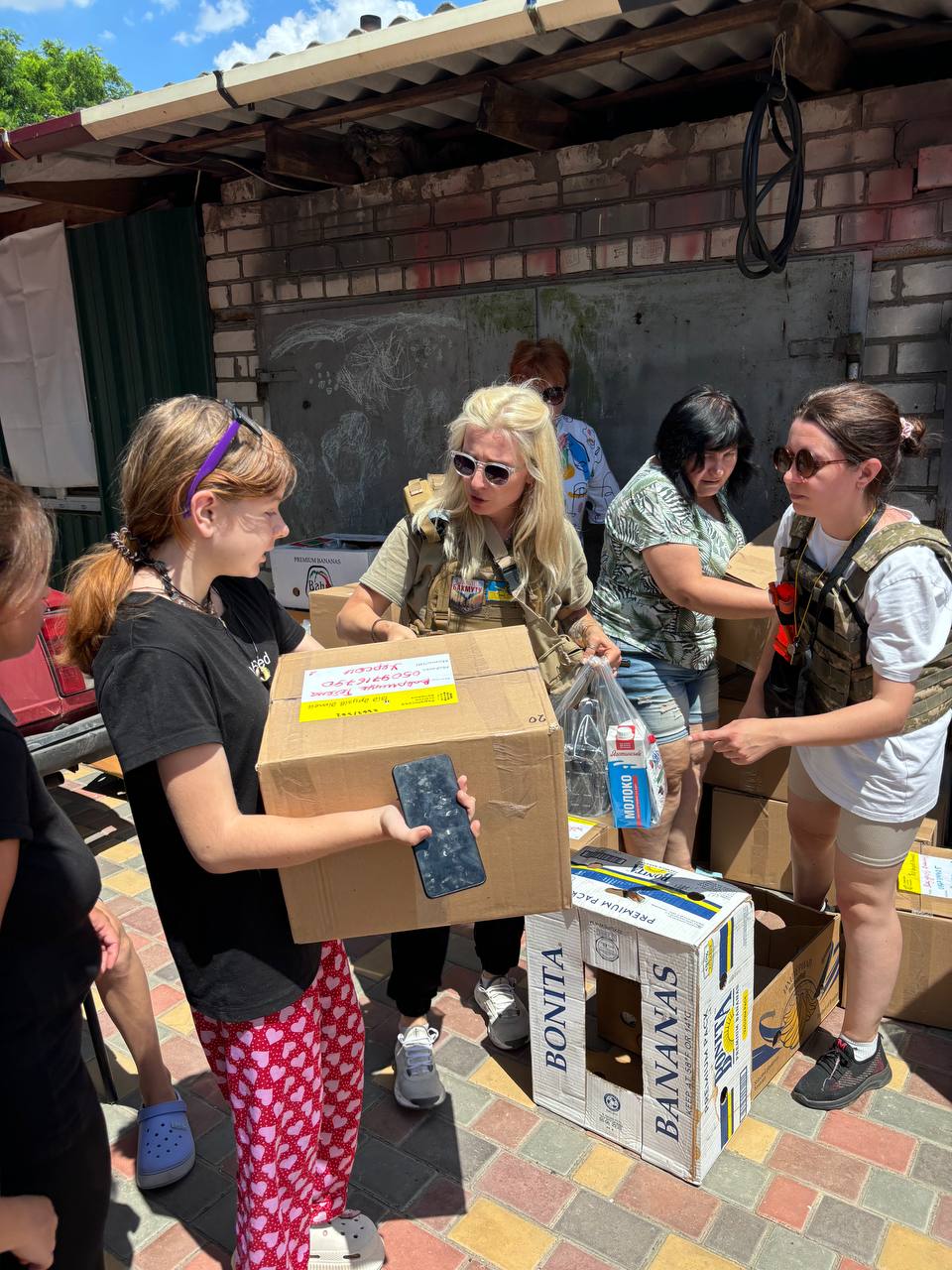 Photo: In order to continue helping effectively, public organizations must have strong management, Tetiana Liulka is convinced
Photo: In order to continue helping effectively, public organizations must have strong management, Tetiana Liulka is convinced
For us, it has never been enough to conduct humanitarian missions. We have always wanted to offer something more than just a food package or toys. Therefore, we carefully studied the situation in each family, gathered information, and provided assistance tailored to improve the life of each specific child.
To carry out such work, a person must have the right values at their core, a genuine desire to help children, and not worry about where to find money for their own children’s dinner or how to pay for utilities.
Management is the foundation of any organization, whether it's a business or a charitable fund. A leader must take responsibility for their team. The formula here is that successes are the result of our team’s efforts, while failures are mine. This is about accountability.
We will never send expired items in a package. We meticulously sort clothes using the principle of "as if for our own children." If you visit our headquarters, you will see how much we value order. Everything in our warehouses is neatly and clearly organized. All documents are properly processed. Only in this way can a fund operate effectively in the long term.
Everyone on the team knows and hears from me only one thing: "What we do is more important than ourselves.”

